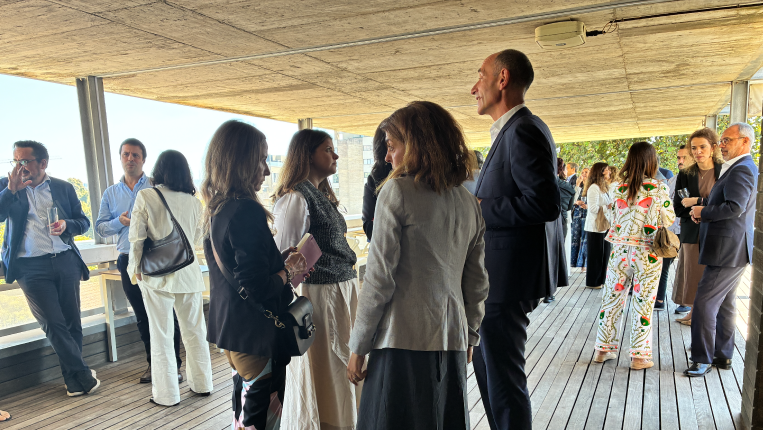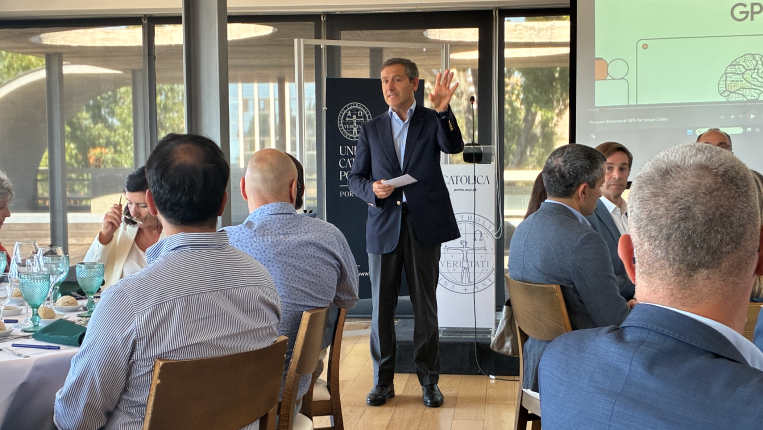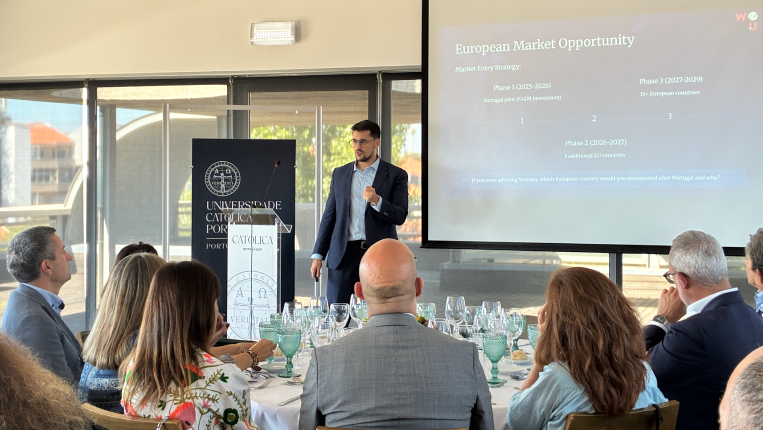Católica Porto Business School hosted yesterday the second “Beyond Business” lunch, where a disruptive artificial intelligence technology developed at Woxsen University in India was presented. The system, named “Behavioural GPS™”, promises to revolutionise the implementation of smart cities by predicting human behaviour with an accuracy rate of over 85%.
The Dean of Católica Porto Business School, João Pinto, opened the session: “Artificial Intelligence is an area to which we are giving increasing attention at our School and it is therefore a privilege to welcome Woxsen University, one of our partners, with whom we will be launching an immersive programme in this field in November.” Around 50 participants attended the lunch, representing 30 Portuguese companies.
The presentation was delivered by the Vice-President of Woxsen University, Raul Villamarin Rodriguez, who explained how this technology, developed between 2022 and 2024 in Hyderabad, functions as a “Waze for organisational strategy”, mapping where people will be and how they will react before they even know it themselves.
“How many of you have experienced a technological implementation that failed due to poor user adoption?” asked Rodriguez during his intervention, highlighting one of the key problems the system seeks to solve.
The system is already implemented in eight Indian cities – Hyderabad, Bangalore, Chennai, Mumbai, Delhi, Pune, Ahmedabad and Kolkata – and generates an annual revenue of €23 million. The practical results are remarkable: in Hyderabad, behavioural prediction accuracy reached 89% for traffic and 86% for public services, with a 34% improvement in traffic flow and an increase in citizen satisfaction from 68% to 91%.
The technology is based on a three-layered architecture: a behavioural intelligence engine using neural networks, a democratic integration module that preserves citizens’ autonomy, and a predictive optimisation platform for scenario modelling.
Woxsen University has ambitious plans for Europe, with Portugal as the pilot country for entering the European market. One of the most interesting aspects of the presentation focused on the challenges of cultural adaptation. Rodriguez explained how algorithms designed for the Indian community-based context need to be calibrated for more individualistic societies such as Portugal.
“The weight of ‘individual autonomy’ in our algorithms is 0.34 in the Indian context, but would need to rise to 0.78 in the European context,” he illustrated, showing how the technology dynamically adapts to cultural differences. “The major competitive advantage lies in cultural adaptability,” explained Rodriguez. “Our system integrates 22 cultural parameters, something that none of our competitors – Google, IBM or Microsoft – is able to offer.”
The system can process 50,000 data points per citizen per day, far exceeding the 12,000 of Google Sidewalk Labs or the 25,000 of IBM Watson IoT, which contributes to its superior predictive capacity. During the session, Rodriguez also stressed that “50% to 65% of smart city projects fail due to citizen resistance”, a problem the system seeks to mitigate through its ability to predict and adapt to human behaviour.
The “Beyond Business” event is an initiative of Católica Porto Business School, organised in partnership with Seal Group, aiming to bring to Porto discussions on the latest technological and business innovations. The next lunch in this series is scheduled for January 2026.








